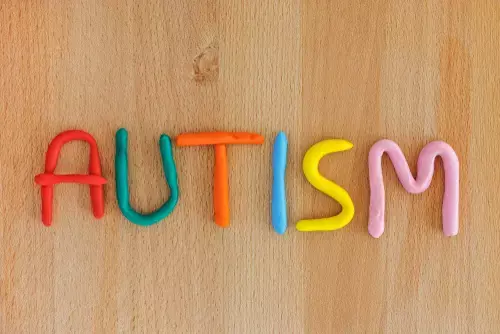- Home
- Medical news & Guidelines
- Anesthesiology
- Cardiology and CTVS
- Critical Care
- Dentistry
- Dermatology
- Diabetes and Endocrinology
- ENT
- Gastroenterology
- Medicine
- Nephrology
- Neurology
- Obstretics-Gynaecology
- Oncology
- Ophthalmology
- Orthopaedics
- Pediatrics-Neonatology
- Psychiatry
- Pulmonology
- Radiology
- Surgery
- Urology
- Laboratory Medicine
- Diet
- Nursing
- Paramedical
- Physiotherapy
- Health news
- Fact Check
- Bone Health Fact Check
- Brain Health Fact Check
- Cancer Related Fact Check
- Child Care Fact Check
- Dental and oral health fact check
- Diabetes and metabolic health fact check
- Diet and Nutrition Fact Check
- Eye and ENT Care Fact Check
- Fitness fact check
- Gut health fact check
- Heart health fact check
- Kidney health fact check
- Medical education fact check
- Men's health fact check
- Respiratory fact check
- Skin and hair care fact check
- Vaccine and Immunization fact check
- Women's health fact check
- AYUSH
- State News
- Andaman and Nicobar Islands
- Andhra Pradesh
- Arunachal Pradesh
- Assam
- Bihar
- Chandigarh
- Chattisgarh
- Dadra and Nagar Haveli
- Daman and Diu
- Delhi
- Goa
- Gujarat
- Haryana
- Himachal Pradesh
- Jammu & Kashmir
- Jharkhand
- Karnataka
- Kerala
- Ladakh
- Lakshadweep
- Madhya Pradesh
- Maharashtra
- Manipur
- Meghalaya
- Mizoram
- Nagaland
- Odisha
- Puducherry
- Punjab
- Rajasthan
- Sikkim
- Tamil Nadu
- Telangana
- Tripura
- Uttar Pradesh
- Uttrakhand
- West Bengal
- Medical Education
- Industry
A routine prenatal ultrasound can identify early signs of autism

BEER-SHEVA, Israel - A routine prenatal ultrasound in the second trimester can identify early signs of Autism Spectrum Disorder (ASD), a new study by Ben-Gurion University of the Negev and Soroka Medical Center has found.
Researchers from the Azrieli National Centre for Autism and Neurodevelopment Research published their findings recently in the prestigious peer-reviewed journal Brain.
The researchers examined data from hundreds of prenatal ultrasound scans from the fetal anatomy survey conducted during mid-gestation. They found anomalies in the heart, kidneys, and head in 30% of fetuses who later developed ASD, a three times higher rate than was found in typically developing fetuses from the general population and twice as high as their typically developing siblings.
Anomalies were detected more often in girls than in boys and the severity of the anomalies was also linked to the subsequent severity of ASD.
This study and others will be discussed at the Israeli Meeting for Autism Research to be held February 15-16 at BGU. The press is invited to attend. For more information and to register, click here.
Prof. Idan Menashe, a member of the Centre and the Department of Public Health in the Faculty of Health Sciences, led the research with his MD/PhD student Ohad Regev.
"Doctors can use these signs, discernable during a routine ultrasound, to evaluate the probability of the child being born with ASD," says Prof. Menashe, "Previous studies have shown that children born with congenital diseases, primarily those involving the heart and kidneys, had a higher chance of developing ASD. Our findings suggest that certain types of ASD that involve other organ anomalies, begin and can be detected in utero."
A previous study of the Centre found early diagnosis and treatment increased social ability by three times as much. Prenatal diagnosis could mean a course of treatment from birth instead of waiting until age 2 or 3 or even later.
The study was conducted as part of Ohad Regev's doctoral thesis, advised by Prof. Idan Menashe and Prof. Reli Hershkovitz. Additional researchers from Ben-Gurion University and Soroka Medical Center included: Dr. Amnon Hadar, Dr. Gal Meiri, Dr. Hagit Flusser, Dr. Analya Michaelovski, and Prof. Ilan Dinstein.
This study was supported by a grant from the Israel Science Foundation (No. 1092/21) and made use of the National Autism Database supported by the Ministry of Innovation, Science and Technology, and the Azrieli Foundation.
http://dx.doi.org/10.1093/brain/awac008
Hina Zahid Joined Medical Dialogue in 2017 with a passion to work as a Reporter. She coordinates with various national and international journals and association and covers all the stories related to Medical guidelines, Medical Journals, rare medical surgeries as well as all the updates in the medical field. Email: editorial@medicaldialogues.in. Contact no. 011-43720751
Dr Kamal Kant Kohli-MBBS, DTCD- a chest specialist with more than 30 years of practice and a flair for writing clinical articles, Dr Kamal Kant Kohli joined Medical Dialogues as a Chief Editor of Medical News. Besides writing articles, as an editor, he proofreads and verifies all the medical content published on Medical Dialogues including those coming from journals, studies,medical conferences,guidelines etc. Email: drkohli@medicaldialogues.in. Contact no. 011-43720751


